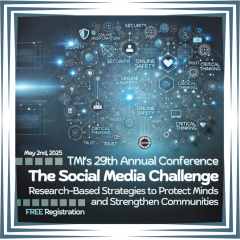More Video Games, Fewer Books at Schools?
Chicago, IL (US), April 2007 - Of all of the proposals aimed at improving America's failing schools, there's one idea kids will really like: more video games and fewer books. At least a number of educators hope so, arguing that children will get more excited about school and that video games can present real-life problems to solve.
Nobody is talking about putting violent video games such as "Doom" or "Mortal Combat" into classrooms, particularly given concerns they may encourage aggressive behavior. Instead, educators such as Indiana University associate professor Sasha Barab are developing alternative video games that can teach as well as entertain. "I believe in digital media literacy. If we don't make changes in the way we educate our children, they will be left behind in world markets," said Barab, a former high school teacher. "Right now, I'm not that optimistic about where schools are headed."
Another backer of video games as educational tools is Katie Salen. A game designer, Salen is working with a group called New Visions for Public Schools to establish a school in New York City for grades six through twelve that would integrate video games into the entire curriculum. "There's a lot of moral panic about addiction to games. There's a negative public perception, and we know we have to deal with that. But teachers have been using games for years and years," Salen said.
'The World Is Not a Video Game'
The MacArthur Foundation is investing $50 million to investigate whether video games promote learning, and last month, the organization sponsored a panel discussion on the subject in Chicago.
"Kids don't just play games. The games inspire, so they then turn to books," said Connie Yowell, director of education at the Chicago-based foundation. "There are bad games, but people tend to blame the tools instead of learning about them."
Dr. Joshua Freedman, a neuropsychiatrist at the University of California, Los Angeles, said video games are interactive and can help with spatial concepts. He adds, "But there's still a question about the value to the extent that most of the world is not a video game. They're not getting problems in real-world situations".
Video games engage children with continuous action, a concept known as "enthrallment", which raises the threshold for engagement, Freedman said. "It's the equivalent of giving kids a lot of sweets and then wondering why they don't want to eat regular food," he commented.
Several studies have indicated a correspondence between video-game playing and higher rates of attention deficit disorder (ADD) among children; it has also been associated with aggressive behavior. Freedman noted, however, that cause and effect are difficult to prove. "I wouldn't say that using more games in education shouldn't be done; I'm just saying that it should be done with our eyes open."
One teen, Shelby Levin, a tenth grader with a 3.5 grade-point average at North Farmington High School in Farmington, Michigan, acknowledges that he plays games mostly for fun. A fan of sports games and violent games like Grand Theft Auto, Levin says, "I don't think you can learn more from playing video games than from reading a book or doing an assignment."
But Levin, sixteen, also participates in the virtual online world called Second Life, and says he does pick up some important skills from his activity there. "In Second Life, I'm playing with kids from France, Italy, and Germany. We all come together and hang out online. You learn about entrepreneurship because you have to hustle people and make money," he said.
That's one reason some educators advocate devoting classroom time to teaching children how to build virtual worlds - much like archaeologists, engineers, and others do - and to playing games alongside other Web-based activities.
What's more, the trend toward administering more standardized tests does not prepare children for a digital future, opines David Williamson Shaffer of the University of Wisconsin-Madison, author of "How Computer Games Help Children Learn." "We've organized our schools using methods from the Middle Ages," criticizes Shaffer. "We should start to have a discussion about what needs to be learned."
Barab marvels at the skills her son has mastered from video games, but limits him to six hours a week, fearing addiction. "My six-year-old, Julian, can step into a video game and a world of rules and figure them out. He's not scared of the unknown or failure. I think that's something valuable that video games provide. But, I want him to experience much more outside of games, including relationships ," Barab added.










